Like any great reality show, Indian Matchmaking has a well-defined cast of characters. There are heroes (Vyasar, the sweet Austin schoolteacher worried his family history might scare his prospects off). There are villains (Vinay, the finance bro who stands his date up twice, including once on camera). But like any great TV drama, the Netflix docuseries also has its antiheroes—or more specifically, its antiheroine.
Aparna Shewakramani is an attorney based in Houston. By the time she meets host and matchmaker Sima Taparia, better known to her clients as Sima Auntie, she’s 34 and says she’s ready for a serious relationship. Aparna is one of Sima’s American clients, designed to show how matchmaking can work across the diaspora (and increase the show’s appeal to more of its platform’s global subscriber base). But unlike Guyanese event planner Nadia or divorced single mother Rupam, social media hasn’t treated Aparna like an audience surrogate who viewers can identify and sympathize with. Instead, in the week or so since Indian Matchmaking’s release, Aparna has proved extremely divisive—and just maybe, has been unfairly maligned.
Reality TV tends to turn flesh-and-blood people into stock characters, and Aparna’s archetype is easy to recognize. She’s the quintessential career woman who doesn’t have the time, energy, or inclination to focus on her love life. And now that she’s decided to put more effort into romance, she’s unable to turn off the perfectionism that’s gotten her so far in her professional life. Take the way she describes a typical first date: “I have a place. It’s a wine bar, and we do 55-minute dates there. I sit at the same table—it’s right by the door—and I literally give the person an hour.” Aparna may be on a dating show, but she talks like a Shark Tank judge.
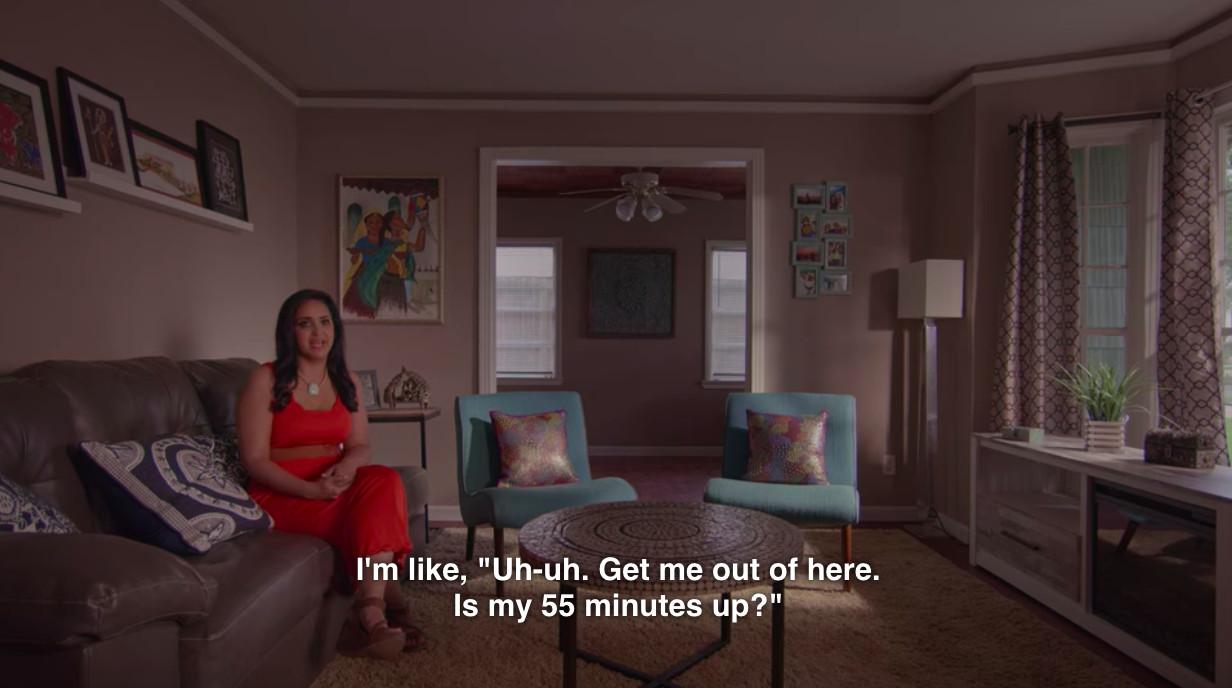
This scene, for the record, is less than 10 minutes into Indian Matchmaking’s first episode. Aparna’s perceived sins only snowball from there. She has impossible standards! She judges a guy for being nice to a waiter! She hates comedy! Actually, scratch that—no one who’s been to a mediocre improv show can fault her for that one. But she judges a guy for not knowing Bolivia has salt flats!
To give the internet some credit, Aparna never tries to present herself as anything less than opinionated, abrasive, and stubborn. It’s no coincidence she’s the first client we meet after spoiled mama’s boy Akshay. Sima constantly preaches the virtues of compromise and flexibility, particularly to women. Aparna is the human antithesis of those ideas, a test case for whether an old-fashioned practice can work for millennials and their newfangled values. (There’s also Ankita, a New Delhi–based fashion designer who gets flak from Sima’s colleague for not wanting to leave the country for some hypothetical future fiancé.)
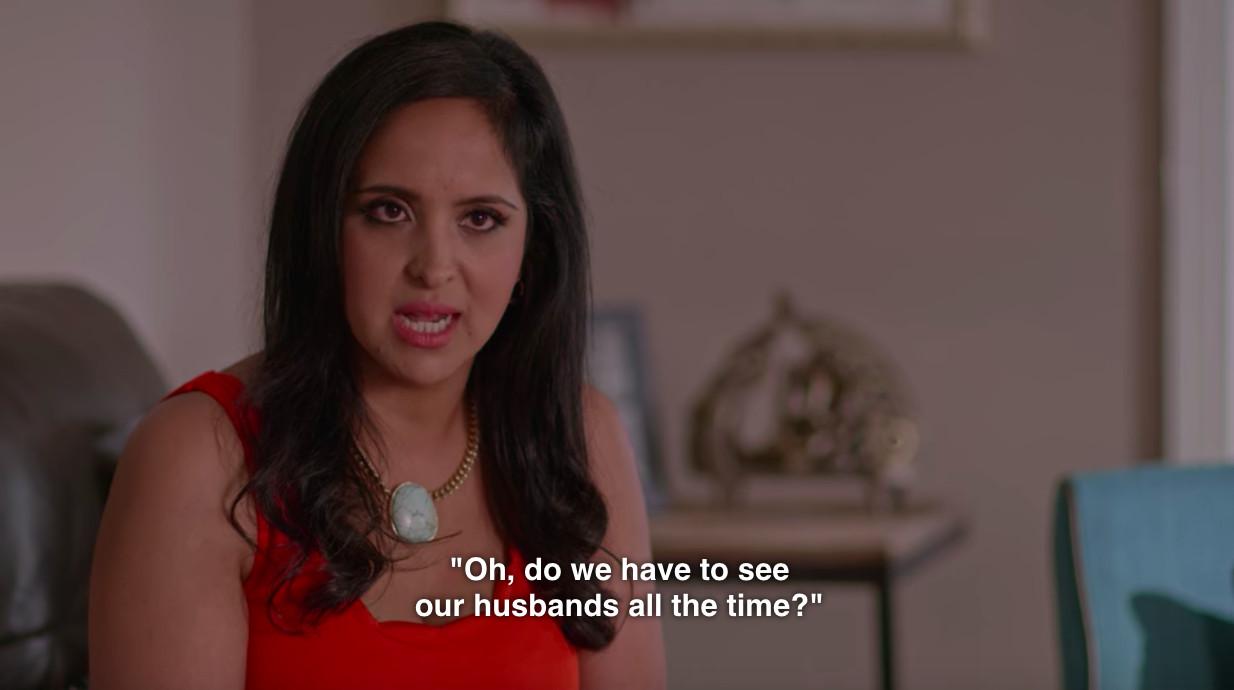
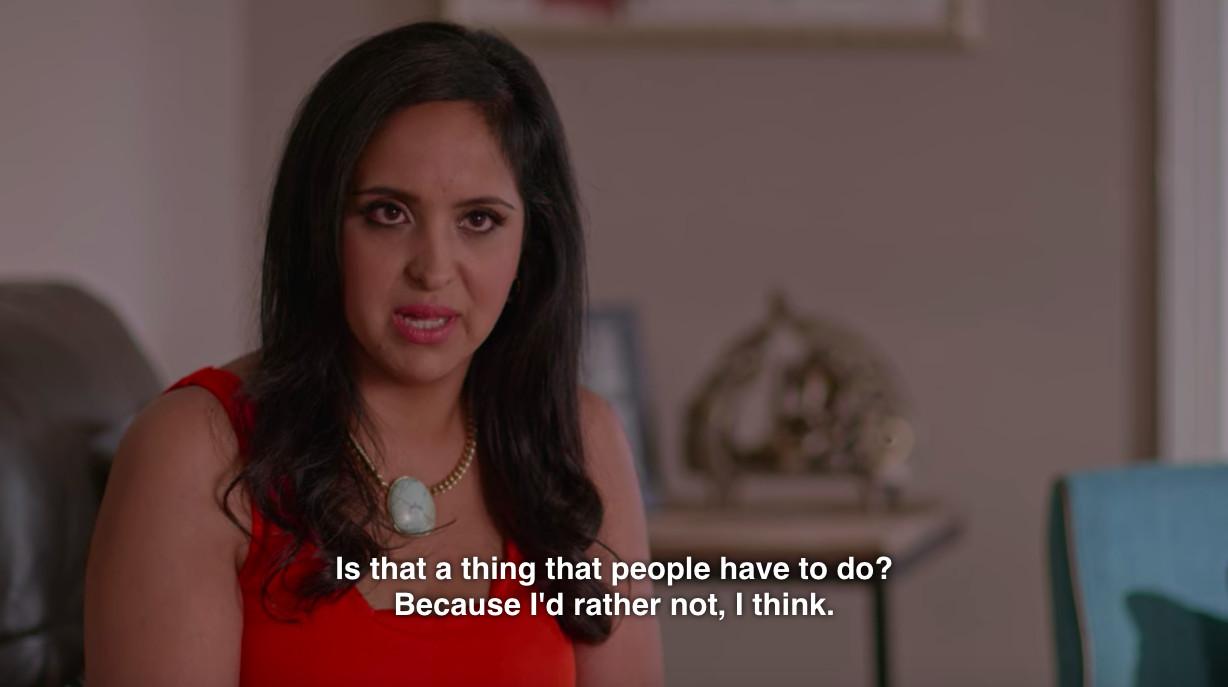
Spoiler alert: For Aparna, it doesn’t—but the matches we see don’t pan out for anyone else on the show, either. And that may be for the best. Many critics have pointed out the ugly history, heteronormativity, and casual racism of the matchmaking process. (Even Sima’s otherwise-progressive clients list preferences for partners that are “fair” or “from a good family” without embarrassment.) Indian Matchmaking includes a slew of When Harry Met Sally–style cold opens attesting to the viability, and longevity, of matched marriages. Given the context, though, is failing to thrive in such a flawed system really a bad thing?
Aparna’s not exactly at fault for not finding a husband, a pretty retrograde goal to begin with. But beyond being blameless, I’d argue, she’s actively likable. Like most people, the qualities that make Aparna so polarizing are also what make her so fun to watch, and vice versa.
For one thing, Aparna is extremely good at the basic job description of a reality star: giving us entertaining, extra-bingeable TV. She has an intuitive knack for coining one-liners that stick, then making self-aware jokes about them on her Instagram. No wonder the producers introduce her first and emphasize her story so heavily, especially in the early episodes. That’s called brand building! Like so:
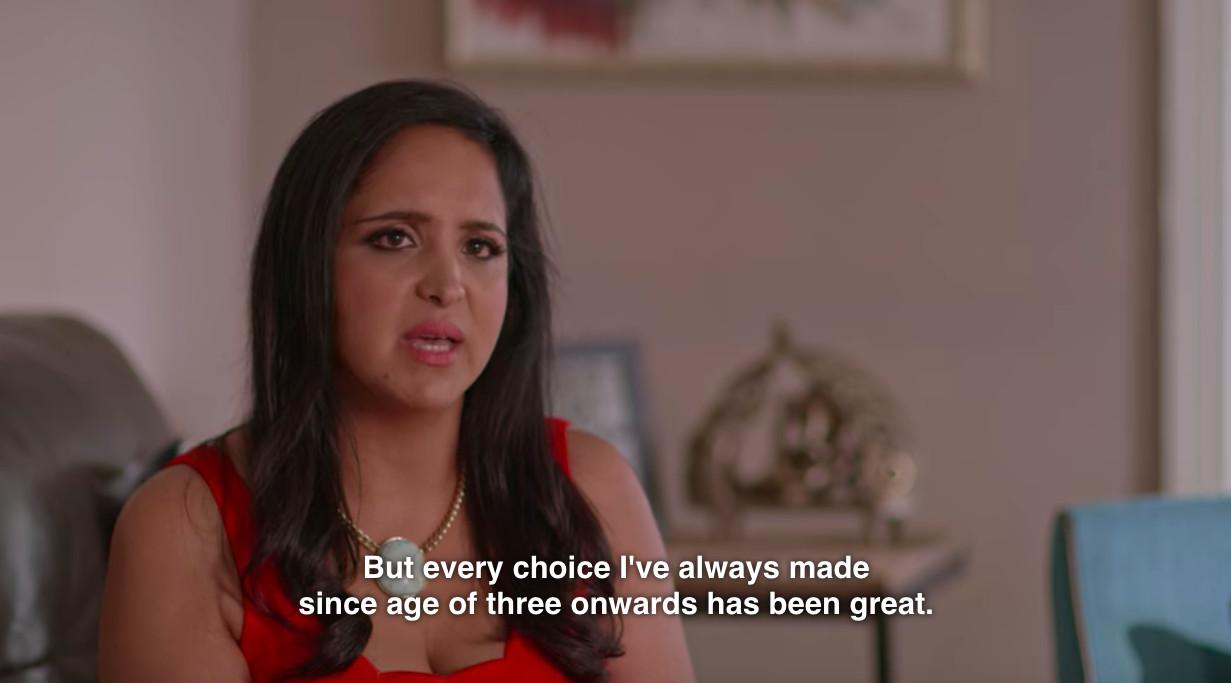
But what ultimately makes Indian Matchmaking so addictive is its blend of novelty with the all-too-familiar. The premise is built on a heavy dose of voyeurism, inviting neophytes to gawk at what they might see as the most extreme parts of the process: meeting someone’s parents before the first date; agreeing to date largely within your race; flying across the country for a potential match. Many critics have deemed the show irresponsible for portraying South Asians in this way to a mostly white audience.
Still, that aspect of the show is balanced out by how recognizable the dates, and the exhausting process of dating, turn out to be. Like online dating, matchmaking is essentially an introduction service, giving both parties a sense of each other’s “biodata”—hobbies, background, education—while leaving chemistry up to chance. (It’s also emphatically stressed that both sides have veto power.) And many of Aparna’s less flattering traits are clearly coping mechanisms from years of dealing with dating’s challenges, particularly for assertive women who don’t want to compromise their independence.
“There’s nothing about me I think I need to change, evolve, or grow into to be a better partner for someone else,” Aparna explains. It’s an oft-quoted line to highlight her intransigence, its follow-up less so: “We’ll compromise to fit each other better, I understand that. But there’s a lot of things this person is not gonna like about me that I’m gonna have to say, ‘Sorry, this part of me is actually done.’” Aparna leads a full, busy life with established routines she has no interest in giving up. Viewers may hate on her strict criteria, but wouldn’t it be worse to put up a false front for someone who isn’t even the right fit? It’s good that she knows herself!
On a similar note, Aparna’s mom, Jotika, can come off like a perfectionist who demanded her daughters get straight A’s and three degrees. But at the end of the day, she tells Sima, “I don’t want somebody to crush my daughter’s spirit.” Aparna wants someone who sees her assertive side as a positive, not a drawback. When she talks about her mom, she sounds a lot like she’s talking about the attitude she wants from a partner: “She appreciates everything I do, and allows me to be who I am.” And Aparna likes who she is, which can make anything less than a stellar date seem like a waste of time.
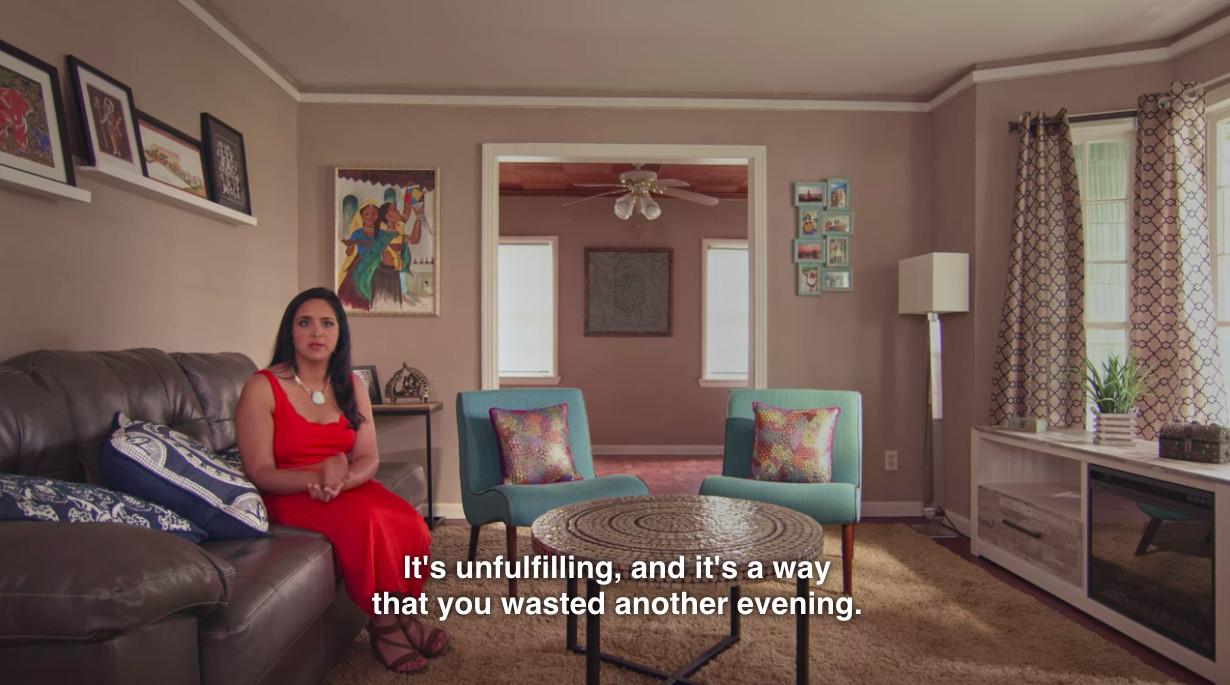
Most of Aparna’s over-the-top tendencies are just understandable instincts taken too far. Sure, she might have high standards, but those standards are shaped by a desire to protect herself from an unsatisfying match. And while it might be asking too much for a partner to fit seamlessly into her jam-packed life without any adjustments, there’s something to be said for not rearranging a perfectly nice existence on spec. Plus, in the hellish modern landscape of swipes and sipped wine, who hasn’t felt like cutting their losses at a hard 55 minutes?
Over the course of the season, Aparna grows more receptive to new experiences; she goes on a date with another attorney—previously a point on her long list of no-nos. She still wouldn’t be caught dead with a snowboarding podcast host (retweeting that you “dodged a bullet” is poor form, Srini!), but she successfully broadened her horizons. And at the very least, Aparna’s not a hypocrite. “I don’t want to change the person in front of me. I want them to be uniquely and authentically themselves,” she told O Magazine. “I want them to be able to share that with me. And I want to appreciate those things about them that make them them.” It’s only fair.